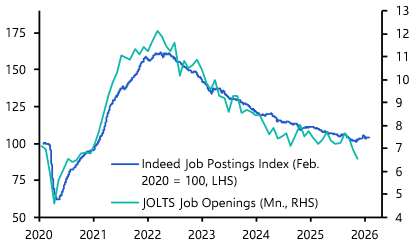It’s that time of year when a steady stream of “Key Calls for 2020” trickle into inboxes. We’ll be sending our own over the coming days and I’ll summarise them in my note next week. But before looking ahead, it’s useful to look back and see how our forecasts for this year panned out – not least because knowing where and why we were right and wrong in 2019 should help inform our forecasts for 2020.
This year has certainly been an eventful one. We’ve seen mounting fears of a global recession, dramatic u-turns by the Fed and ECB and the steady escalation of a trade war between the US and China. Meanwhile, here in the UK, two Brexit deadlines have come and gone and, while this week’s election may produce a Conservative majority that means the Withdrawal Agreement passes parliament, this only sets up a new cliff edge at the end of next year by which point a free trade agreement with Europe will have to be agreed. Yet despite all of this, asset prices across the board have increased, with global bonds rallying and equity markets hitting new record highs.
As it happens, with perhaps one exception that I’ll come to later, I think we can credibly claim to have got the big calls right this year. Last December, when looking ahead to 2019, I wrote that “the main point to emphasise is that we expect the global economy to slow next year and by more than most anticipate”.
At the time, the consensus view was that the US economy would slow a little this year but that the euro-zone economy would pick up. In contrast, we argued that the US would weaken by more than the consensus expected and that the euro-zone would actually slow, with Italy flirting with recession for much of the year. That view has been vindicated. And while China’s economy has held up a bit better than we had anticipated, there are now signs that is starting to lose a little steam. All told, despite the fact that our forecasts for global GDP growth sat right at the bottom of the consensus range at the start of this year, world growth turned out to be a bit weaker than even we had expected.
I also think it’s fair to say that we were ahead of the pack in anticipating how the key political and geo-political issues would play out this year. Last December, we argued that the US-China trade war was more likely to escalate than de-escalate and that there was “a good chance that it shifts from a conflict centred on tariffs and trade balances to one centred on intellectual property, industrial strategy and national security”. We also argued that “a combination of fudge and delay will mean that the UK avoids a “no deal” Brexit – but at the expense of prolonging the uncertainty for businesses and investors over the shape of our future relationship with Europe”. In both cases, we’ve been right. (On a related note, we have explored both Brexit and the future of globalisation in new “key themes” web pages that we have launched this year. You can view them here and here.)
In terms of central bank policy, we correctly argued that the extent of interest rate hikes priced into most markets at the start of this year was too aggressive and that, as growth slowed, the debate would increasingly turn towards the case for rate cuts. In the event, while we were on the right side of the argument, central banks moved more quickly than even we anticipated.
This brings me to the one area where we were wrong this year. Our view that bonds would rally in an environment of weaker growth and lower rates was right. But we failed to foresee that a swift response by central banks would provide a boost to equity markets. We had thought that weaker earnings growth would pull equity markets down by 5-10% this year. Yet while earnings growth has weakened, the MSCI global equities index has risen around 20%.
We can draw several lessons from all of this. First, the speed and the scale of the response by central banks this year suggest that policymakers are more attuned to the downside risks to growth than we (and the market) had previously thought. Second, equity markets seem to be taking their cue as much from central banks as from developments in the real economy and the growth of corporate earnings. Finally, if it wasn’t already obvious, there are no easy or obvious solutions to the more fundamental political issues that cast a long shadow over the global economy. Anyone that is expecting a major break-through on trade or a swift resolution of Brexit next year seems likely to be disappointed. I’ll have more to say on all of this when I preview our key calls for 2020 next week.
In case you missed it:
- In a major new piece of work, our Senior Economic Adviser, Vicky Redwood, argues that tackling climate change need not come at the cost of slower economic growth.
- Our Emerging Markets Economist, Edward Glossop, revisits debt risks in EMs.
- Our Senior Asia Economist, Marcel Theliant, argues that the fiscal stimulus unveiled last week in Japan is significantly smaller than the headlines suggest.



